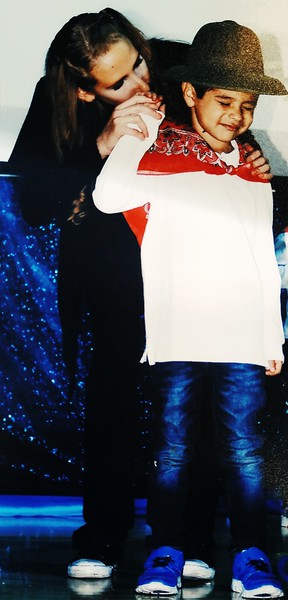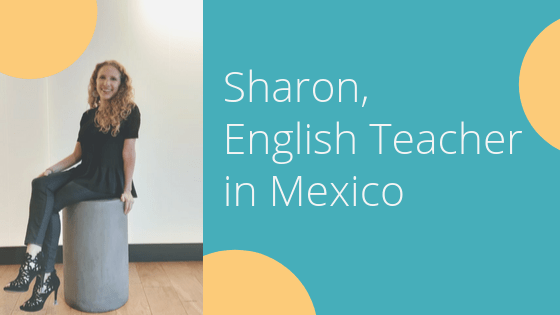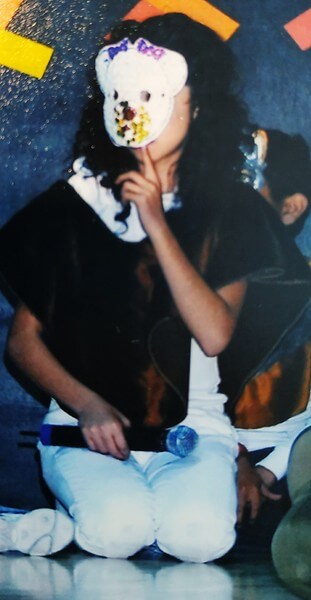Sharon Hofmeister, from Mexico, has dedicated her career to teaching special education students in Mexico. “I decided that I wanted to work with special needs students because there’s always a way and a strategy so they can learn and use it in their daily lives.”
We spoke with her to find out more about her experience teaching English and how she’s making an impact on the lives of her unique students.
Could you start by telling us a little bit about yourself and your background?
My name is Sharon Ruth Hofmeister Kahn; I was born in México City. I live in the southwestern part of the city. Since I was a little girl, I was diagnosed with ADD (Attention Deficit Disorder).
Dealing with challenges in school
Unfortunately, I had a really bad experience when I was studying in the first grade, because my teacher told my parents that I wouldn’t be able to finish elementary school. Her hypothesis was completely wrong, because, thank God, I finished high school with a great score. Thanks to my family, therapists, teachers, and friends, I had the chance to succeed. I learned different strategies during all my school years.
Deciding to pursue special education
As years passed by, I understood that having ADD is not a problem. If you have the chance to use different tools and strategies, you can be a really efficient person, that’s why I decided to do a bachelor’s degree in special education with a minor in language and cognition.
Earning TEFL certification and following a career path
I started working giving speech and language therapies, and then I decided I wanted to work in special education schools. I started giving therapies, and then they asked me to take a teacher’s degree so that I could give English classes. This is when I took the Bridge online TEFL course.
When I started with English class for special education students, it was a very big challenge for me, and as time passed by I saw it was a fulfilling experience in which the results were above my expectations, especially in students with autism and hearing loss. They had the ability to communicate in English before they spoke their native tongue.
I’ve been working as an English teacher for five years basically in special education schools. When I worked in regular schools basically I’ve worked as a speech, language, learning and sensorial therapist.

Sharon showing student, Daniel, how to make cookies as part of an occupational project; they baked them and then packed them to sell at a bazaar.
You teach Special Education students English in Mexico City. Can you tell us about that?
First of all, I think everyone has the right to study and have an education, even if they have a disability. We should be able to call them by their names and not label the person.
People think that because they are special education children, they don’t understand. Unfortunately, in Mexico City, we don’t have so many schools that work with this population.
I decided that I wanted to work with special needs students because there’s always a way and a strategy so they can learn and use it in their daily lives.
Teaching them English has been really interesting because I’ve noticed that for these students, it’s easier because the grammar is not as difficult as it is in Spanish. As an adult, I can tell that I learn along with them day by day. Each student learns in a different way so we as teachers need to understand which is the best way for them to integrate the information into their daily lives.
Sharon’s student, Belen, waiting for her turn to speak in a class performance.
Can you walk us through a typical teaching day?
Now, I work at Cedar Valley, it’s a school where we work with students with learning disabilities and behavioral problems. Students are not organized by grades, they are divided according to their cognition level and abilities.
I start my classes at 8:00 in the morning. Depending on the day of the week, the subject I start with is different. I give different classes, occupational therapy in middle school and linguistic organization and English class in elementary.
In English class, I do my planning based on each student’s level. These are some of the books I use.

I choose the book for each student depending on their level of English. I always try to give each student a challenge. Besides working on the books, I love to work with them by doing projects. I am trying to implement TOEFL exams and Go English Projects. That way the students are going to be able to participate in different competitions and their level of English will improve.
Even though I have my objectives ready for each class, sometimes I need to take more time in each lesson or maybe I need to do more curriculum adaptations.
You earned the 40-Hour BridgeTEFL Basic Certificate. Why did you choose this course, and has it helped you teach more effectively?
I did my BridgeTEFL online course and realized that it’s an excellent course, and it gives you the opportunity to read and listen to the videos when you have the time to sit down and study. I learned a lot, and now I can apply new strategies and activities to my classes.
If English is not your first language, how has this shaped the way you teach?
English is my second language; however, I studied at the American School from kindergarten through elementary school. Then I changed schools, and even though it wasn’t a bilingual school, we still had English classes.
I had the opportunity to practice the language with my mother because she worked as an English teacher and coordinator, so we spoke the language at home. I also love to read books and watch movies in English.
Special Education teachers may be reading this and wondering about getting a similar job abroad. Do you think there’s opportunity in this specialized field?
I think there are not many English teachers for special education students; you need to have lots of patience, care, empathy, creativity, and love. I can tell other teachers that it is really hard work, but it’s wonderful and satisfactory when you see how students learn with their own strategies and methods, using different programs and tools which are offered to them.

Sharon helping her student, Emmanuel, concentrate and catch the rhythm of the song so he could dance during a theater play.
What’s next for you, career-wise?
Career-wise, I am looking for a possibility to go in January of 2020, to Spain (Barcelona) to make my master’s degree in special education, intervention in learning disabilities, and therapeutic psycho pedagogy at the ISEP institute. While I study, I would like to work 15 hours a week. Maybe I can teach ESL.











